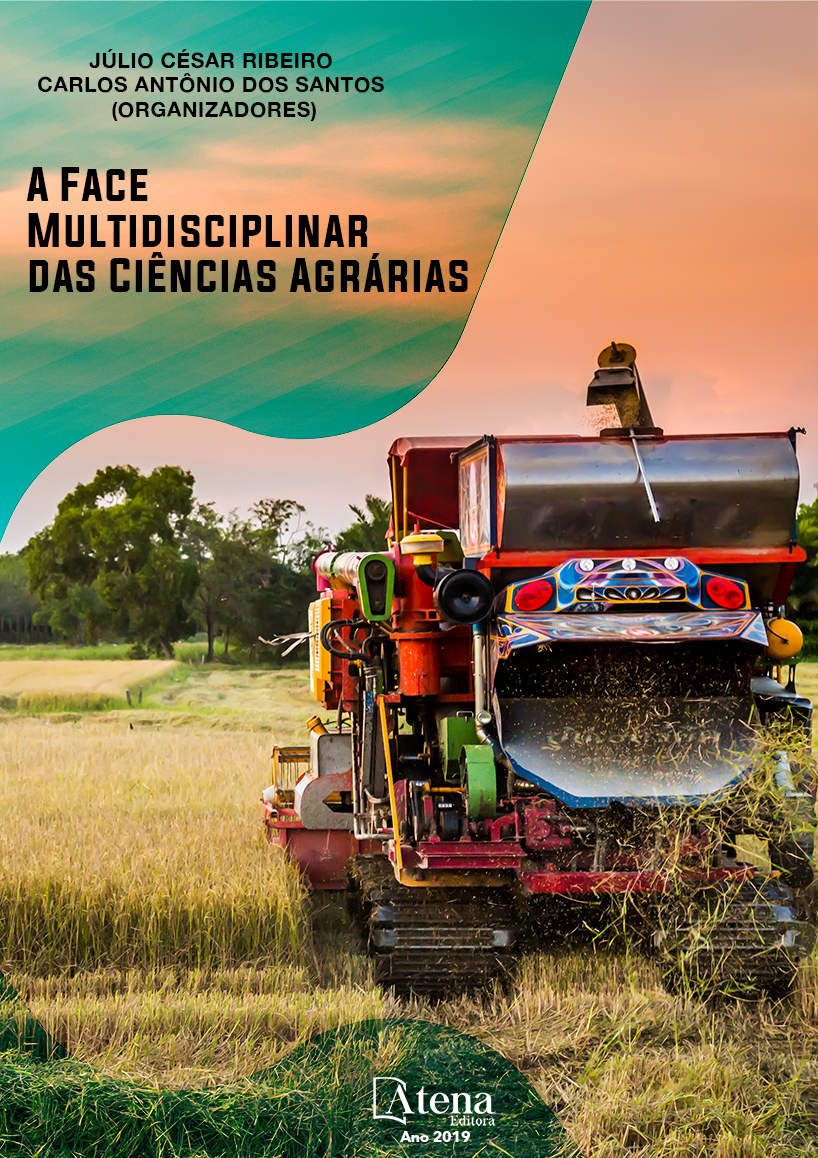
ESPÉCIES DA CAATINGA COM ATIVIDADE ALELOPÁTICA NA GERMINAÇÃO DE SEMENTES DE MELOEIRO
A cultura do melão tem grande
importância socioeconômica no Brasil.
Algumas espécies do bioma caatinga têm
ação alelopática sobre outras espécies. O
objetivo do trabalho foi avaliar os extratos de
folhas e sementes amburana, juazeiro, jucá
e mulungú na emergência de melão. Foram
obtidos extratos de folhas e sementes em
concentrações de a) 1%, b) 0,5%, c) 0,25%,
d) 0,125% e e) 0% (testemunha) em cada
espécie. Cada experimento que foi conduzido
em delineamento experimental inteiramente
casualizado com quatro repetições de 20
sementes. Foram avaliadas a porcentagem
e índice de velocidade de emergência,
porcentagem de plântulas anormais, massa
seca da plântula, comprimento da parte aérea
e raiz da plântula. Os extratos de sementes de
amburana impediram a germinação de melão
e os demais extratos não apresentaram efeitos
sobre esta característica. Os extratos de folhas
de amburana, de folhas e sementes de juazeiro,
de jucá e de mulungú causaram plântulas
anormais de melão. O extrato de sementes
de juazeiro a partir da concentração de 0,25%
diminuiu o acúmulo de massa seca. A maior
concentração do extrato das folhas de mulungú
e do extrato de folhas de jucá favoreceu o
crescimento da parte aérea de plântulas de
meloeiro. O extrato de sementes de mulungú e
jucá diminuiu o comprimento da raiz. Os extratos
de diferentes órgãos das plantas da caatinga,
dependendo da concentração, podem afetar
tanto a emergência como as características
relacionadas ao crescimento da plântula.
ESPÉCIES DA CAATINGA COM ATIVIDADE ALELOPÁTICA NA GERMINAÇÃO DE SEMENTES DE MELOEIRO
-
DOI: 10.22533/at.ed.94819240717
-
Palavras-chave: Cucumis melo L., Amburana cearensis A.C. Smith, Ziziphus joazeiro Mart., Caesalpinia ferrea Mart. ex. Tul. var. ferrea, Erythrina velutina Willd.
-
Keywords: Cucumis melo L., Amburana cearensis A.C. Smith, Ziziphus joazeiro Mart., Caesalpinia ferrea Mart. ex. Tul. var. ferrea, Erythrina velutina Willd
-
Abstract:
The melon culture has great
socioeconomic importance in Brazil. Some
species of the caatinga biome have allelopathic
action on other species. The objective of this work was to evaluate the extracts of
leaves and seeds amburana, juazeiro, jucá and mulungú in the emergence of melon.
Leaf and seed extracts were obtained in concentrations of a) 1%, b) 0.5%, c) 0.25%,
d) 0.125% and e) 0% (control) in each species. Each experiment was conducted in
a completely randomized experimental design with four replicates of 20 seeds. The
percentage and rate of emergence speed, percentage of abnormal seedlings, dry mass
of the seedlings, shoot length and root of the seedling were evaluated. The extracts
of amburana seeds prevented the germination of melon and the other extracts did not
show effects on this characteristic. The extracts of amburana leaves, leaves and seeds
of juazeiro, jucá and mulungú caused abnormal seedlings of melon. Juazeiro seed
extract from the 0.25% concentration decreased the accumulation of dry mass. The
higher concentration of the mulungú leaves extract and the jucá leaf extract favored
the growth of the aerial part of melon seedlings. The mulungú and jucá seed extract
decreased the root length. The extracts of different organs of the plants of the caatinga,
depending on the concentration, can affect both the emergence and the characteristics
related to the growth of the seedling.
-
Número de páginas: 15
- Andreya Kalyana de Oliveira
- Francisco Ésio Porto Diógenes
- Maria de Fatima Barbosa Coelho


